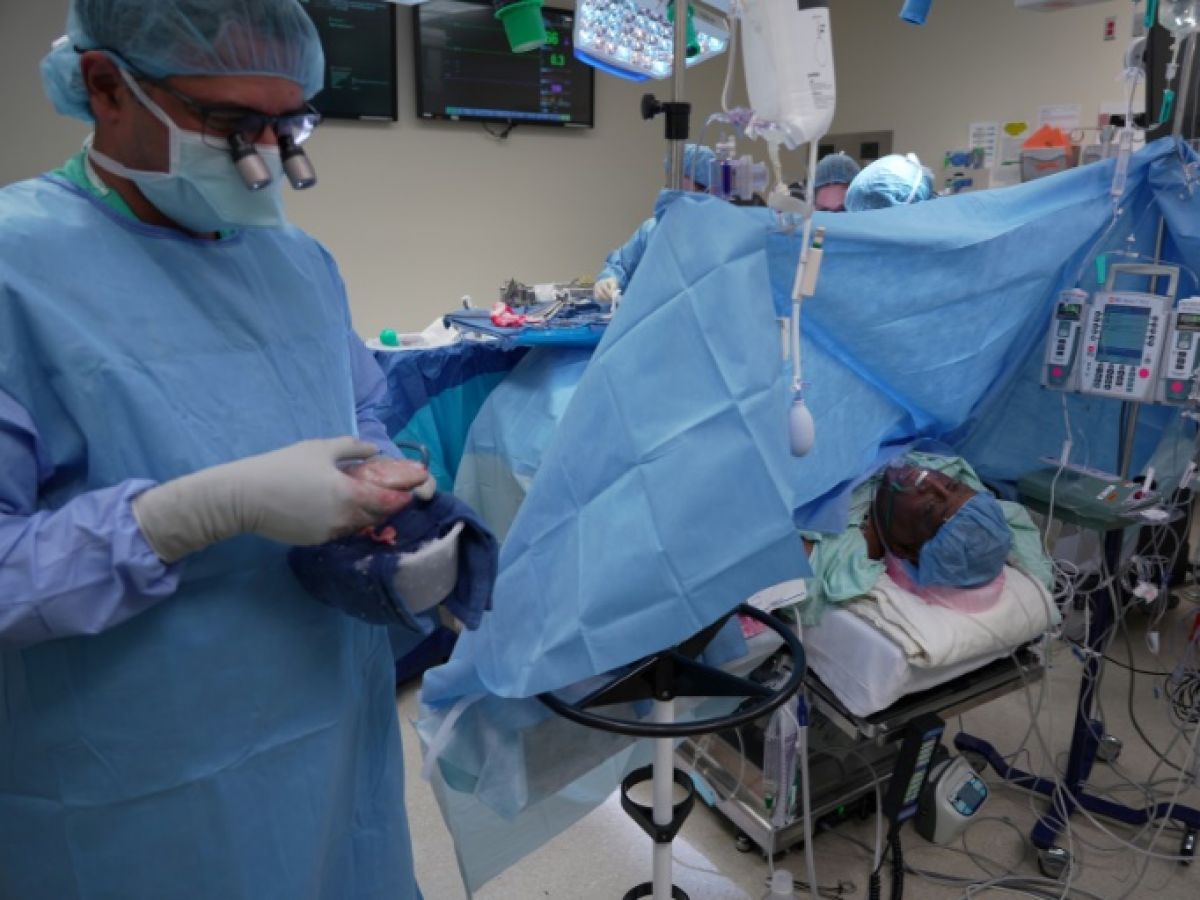“ I have seen everything » : At 74, Harry Stackhouse was able to watch doctors transplant a new kidney into him. A painless experience that allowed him to talk with surgeons, see his new organ and watch the medical team stitch it together. Mr. Stackhouse underwent surgery on July 15 in the Chicago area, at the American establishment Northwestern Medicine, which is seeking to generalize these transplants performed without general anesthesia.
The operation, performed in just over an hour, was the second of its kind for Satish Nadig, director of the Chicago-based Comprehensive Transplant Center. He has since performed a third. Today we find ourselves at an inflection point for grafting.", Mr. Nadig told AFP.
Although the medical literature has reported for several decades and in different countries a few kidney transplants performed on awake patients using the same technique as a cesarean section, this practice has never been fully adopted. It is time to question the paradigms to which we have historically attached ourselves.", pleads Mr. Nadig, as this year marks the 70th anniversary of the first successful human kidney transplant from a living donor.
General anesthesia usually requires intubation, which can damage the vocal cords, disrupt bowel movements and create a " brain fog » persistent, especially in older patients. It can also present risks of more serious but rare cardiac or pulmonary complications for some people.
Read alsoPig Kidney Continues to Work in Human After More Than a Month
"It was incredible"
A father of six, Mr. Stackhouse first experienced flu-like symptoms in late 2019. They worsened to the point where he could barely walk. A few months later, the painter and decorator found himself in the emergency room, where he learned that in addition to having contracted Covid-19, one of his kidneys was failing and the other was functioning at only 2%.
He is forced to undergo dialysis three times a week, but his condition worsens and his daughter Trewaunda urges him to consider a transplant and offers to test her to see if she can become his donor. Initially reluctant, Mr Stackhouse eventually agrees.
His meeting with Professor Nadig and the discovery of the program of operation without general anesthesia, the "AWAKE Kidney Program", decided him. Believe it or not, I didn't feel a thing - it was amazing." , Mr Stackhouse told AFP. He talks to the medical team during the operation and when they offer him to see the kidney that will be transplanted to him, he accepts without hesitation. " I didn't think a kidney was that big!“
Given his age, Mr Stackhouse was able to go home 36 hours after the operation. Professor Nadig's first patient, operated on in May, was discharged after 24 hours, well below the average of five to seven days for an operation under general anaesthetic.
Read alsoOrgan transplants: “One person can save up to 7”
What generalization?
Nadig attributes the success to scientific advances such as the ability to target anesthesia to the abdomen or spine. Avoiding opioids and encouraging patients to eat quickly after surgery had already helped reduce average patient lengths of stay.
After the operation, Mr Stackhouse made a very good recovery, walking, mowing the lawn and preparing his boat for a future fishing trip. He recovered even more quickly than his 45-year-old daughter, Trewaunda, who underwent general anaesthesia. It's just a gift you can give to someone (…) you give them back their quality of life", the teacher explained to AFP.
Christopher Sonnenday, director of the Transplant Center at the University of Michigan Medical School, praises " important innovation » produced by the Northwestern Medicine team. “ Reducing the use of general anesthesia has proven effective in speeding up recovery (of patients) in all surgical disciplines" he adds.
But practice will determine how widespread the procedure can be in kidney transplant surgery, he said, and how it can be offered to patients who are obese or have heart disease, who are at greater risk of complications from general anesthesia.

